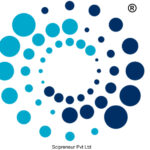
NIH Launched a New Drug Formulary For Expedite Use of Agents in Clinical Trials
By: NIH News
January 20, 2017
The National Cancer Institute (NCI) today launched a new drug formulary (the “NCI Formulary”) that will enable investigators at NCI-designated Cancer Centers to have quicker access to approved and investigational agents for use in preclinical studies and cancer clinical trials. The NCI Formulary could ultimately translate into speeding the availability of more-effective treatment options to patients with cancer.
Click here to know more about NCI Formulary
The NCI Formulary is a public-private partnership between NCI, part of the National Institutes of Health, and pharmaceutical and biotechnology companies. It is also one of NCI’s efforts in support of the Cancer Moonshot, answering Vice President Biden’s call for greater collaboration and faster development of new therapies for patients. The availability of agents through the NCI Formulary will expedite the start of clinical trials by alleviating the lengthy negotiation process — sometimes up to 18 months — that has been required for investigators to access such agents on their own.
“The NCI Formulary will help researchers begin testing promising drug combinations more quickly, potentially helping patients much sooner,” said NCI Acting Director Douglas Lowy, M.D. “Rather than spending time negotiating agreements, investigators will be able to focus on the important research that can ultimately lead to improved cancer care.”
The NCI Formulary launched today with fifteen targeted agents from six pharmaceutical companies:
- Bristol-Myers Squibb
- Eli Lilly and Company
- Genentech
- Kyowa Hakko Kirin
- Loxo Oncology
- Xcovery Holding Company LLC
“The agreements with these companies demonstrate our shared commitment to expedite cancer clinical trials and improve outcomes for patients,” said James Doroshow, M.D., NCI Deputy Director for Clinical and Translational Research. “It represents a new drug development paradigm that will enhance the efficiency with which new treatments are discovered.”
The establishment of the NCI Formulary will enable NCI to act as an intermediary between investigators at NCI-designated Cancer Centers and participating pharmaceutical companies, facilitating and streamlining the arrangements for access to and use of pharmaceutical agents. Following company approval, investigators will be able to obtain agents from the available formulary list and test them in new preclinical or clinical studies, including combination studies of formulary agents from different companies.
The NCI Formulary leverages lessons learned through NCI’s Cancer Therapy Evaluation Program (CTEP) and the NCI-MATCH trial, a study in which targeted agents from different companies are being tested alone or in combination in patients with genetic mutations that are targeted by these drugs. As the use of genomic sequencing data becomes more common in selecting cancer therapies, requests for access to multiple targeted agents for the conduct of clinical trials are becoming more common.
“We are very pleased that several additional pharmaceutical companies have already pledged a willingness to participate and are in various stages of negotiation with NCI,” said Dr. Doroshow, who is also director of NCI’s Division of Cancer Treatment and Diagnosis. “By the end of 2017, we expect to have doubled the number of partnerships and drugs available in the NCI Formulary.”
CTEP staff continue to discuss the NCI Formulary with pharmaceutical companies to make additional proprietary agents available for studies initiated by investigators at NCI-designated Cancer Centers.
The Formulary will complement NIH’s plans for another new public-private partnership in oncology, the Partnership to Accelerate Cancer Therapies (PACT). Through PACT, the NIH, U.S. Food and Drug Administration, biopharmaceutical groups in the private sector, foundations, and cancer advocacy organizations will come together to support new research projects to accelerate progress in cancer research as part of the Cancer Moonshot. PACT research will center on the identification and validation of biomarkers of response and resistance to cancer therapies, with special emphasis on immunotherapies. PACT will also establish a platform for selecting and testing combination therapies. PACT is expected to launch in 2017.
About the National Cancer Institute (NCI): NCI leads the National Cancer Program and the NIH’s efforts to dramatically reduce the prevalence of cancer and improve the lives of cancer patients and their families, through research into prevention and cancer biology, the development of new interventions, and the training and mentoring of new researchers. For more information about cancer, please visit the NCI website at cancer.gov or call NCI’s Cancer Information Service at 1-800-4-CANCER.
About the National Institutes of Health (NIH): NIH, the nation’s medical research agency, includes 27 Institutes and Centers and is a component of the U.S. Department of Health and Human Services. NIH is the primary federal agency conducting and supporting basic, clinical, and translational medical research, and is investigating the causes, treatments, and cures for both common and rare diseases. For more information about NIH and its programs, visit www.nih.gov.
NIH…Turning Discovery Into Health®







Leave a Reply